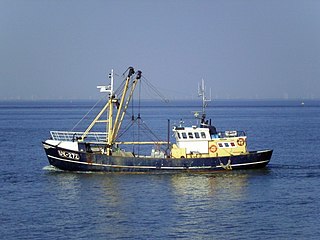Judgment
The Court of Justice, in full court, held that Mrs Cresson had breached her obligations under the Treaties.
| | This section needs expansion. You can help by adding to it. (December 2015) |
| Commission v Edith Cresson | |
|---|---|
| Court | European Court of Justice |
| Citation(s) | (2006) C-432/04, [2006] ECR I-6387 |
| Keywords | |
| Free movement of goods | |
Commission v Edith Cresson (2006) C-432/04 is an EU law case, concerning the constitutional framework in the European Union.
Mrs Edith Cresson was brought to trial at the European Court of Justice by the European Commission for giving her friend Berthelot, a dental surgeon, the role of political adviser through appointing him as a visiting scientist for two and a half years. This went against the maximum duration which was 24 months for visiting scientists. This was argued to be a breach of Article 213 EC Treaty (now Article 245 TFEU), under which members of the Commission had to respect the obligations arising from their office.
The Court of Justice, in full court, held that Mrs Cresson had breached her obligations under the Treaties.
| | This section needs expansion. You can help by adding to it. (December 2015) |

A treaty is a formal, legally binding written agreement between actors in international law. It is usually made by and between sovereign states, but can include international organizations, individuals, business entities, and other legal persons. A treaty may also be known as an international agreement, protocol, covenant, convention, pact, or exchange of letters, among other terms. However, only documents that are legally binding on the parties are considered treaties under international law. Treaties vary on the basis of obligations, precision, and delegation.

The European Court of Justice (ECJ), formally just the Court of Justice, is the supreme court of the European Union in matters of European Union law. As a part of the Court of Justice of the European Union, it is tasked with interpreting EU law and ensuring its uniform application across all EU member states under Article 263 of the Treaty of the Functioning of the European Union (TFEU).

In an extradition, one jurisdiction delivers a person accused or convicted of committing a crime in another jurisdiction, over to the other's law enforcement. It is a cooperative law enforcement procedure between the two jurisdictions and depends on the arrangements made between them. In addition to legal aspects of the process, extradition also involves the physical transfer of custody of the person being extradited to the legal authority of the requesting jurisdiction.

Édith Cresson is a French politician from the Socialist Party. She served as Prime Minister of France from 1991 to 1992, the first woman to do so and only woman until Élisabeth Borne's appointment in 2022. Her political career ended in scandal as a result of corruption charges dating from her tenure as European Commissioner for Research, Science and Technology.

The Charter of Fundamental Rights of the European Union (CFR) enshrines certain political, social, and economic rights for European Union (EU) citizens and residents into EU law. It was drafted by the European Convention and solemnly proclaimed on 7 December 2000 by the European Parliament, the Council of Ministers and the European Commission. However, its then legal status was uncertain and it did not have full legal effect until the entry into force of the Treaty of Lisbon on 1 December 2009.

The Santer Commission was the European Commission in office between 23 January 1995 and 15 March 1999. The administration was led by Jacques Santer.

R v Secretary of State for Transport was a judicial review case taken against the United Kingdom government by a company of Spanish fishermen who claimed that the United Kingdom had breached European Union law by requiring ships to have a majority of British owners if they were to be registered in the UK. The case produced a number of significant judgements on British constitutional law, and was the first time that courts held that they had power to restrain the application of an Act of Parliament pending trial and ultimately to disapply that Act when it was found to be contrary to EU law.

The European Union (EU) is a political and economic union of 27 member states that are party to the EU's founding treaties, and thereby subject to the privileges and obligations of membership. They have agreed by the treaties to share their own sovereignty through the institutions of the European Union in certain aspects of government. State governments must agree unanimously in the Council for the union to adopt some policies; for others, collective decisions are made by qualified majority voting. These obligations and sharing of sovereignty within the EU make it unique among international organisations, as it has established its own legal order which by the provisions of the founding treaties is both legally binding and supreme on all the member states. A founding principle of the union is subsidiarity, meaning that decisions are taken collectively if and only if they cannot realistically be taken individually.
The doctrine of necessity is the basis on which extraordinary actions by administrative authority, which are designed to restore order or uphold fundamental constitutional principles, are considered to be lawful even if such an action contravenes established constitution, laws, norms, or conventions. The maxim on which the doctrine is based originated in the writings of the medieval jurist Henry de Bracton, and similar justifications for this kind of extra-legal action have been advanced by more recent legal authorities, including William Blackstone.
Van Gend en Loos v Nederlandse Administratie der Belastingen (1963) Case 26/62 was a landmark case of the European Court of Justice which established that provisions of the Treaty Establishing the European Economic Community were capable of creating legal rights which could be enforced by both natural and legal persons before the courts of the Community's member states. This is now called the principle of direct effect. The case is acknowledged as being one of the most important, and possibly the most famous development of European Union law.
Francovich v Italy (1991) C-6/90 was a decision of the European Court of Justice which established that European Union Member States could be liable to pay compensation to individuals who suffered a loss by reason of the Member State's failure to transpose an EU directive into national law. This principle is sometimes known as the principle of state liability or "the rule in Francovich" in European Union law.

The primacy of European Union law is a legal principle establishing precedence of European Union law over conflicting national laws of EU member states.

The history of the European Union between 1993 and 2004 was the period between its creation and the 2004 enlargement. The European Union was created at the dawn of the post–Cold War era and saw a series of successive treaties laying the ground for the euro, foreign policy and future enlargement. Three new member states joined the previous twelve in this period and the European Economic Area extended the reach of the EU's markets to three more.

The Treaty of Lisbon is an international agreement that amends the two treaties which form the constitutional basis of the European Union (EU). The Treaty of Lisbon, which was signed by all EU member states on 13 December 2007, entered into force on 1 December 2009. It amends the Maastricht Treaty (1992), known in updated form as the Treaty on European Union (2007) or TEU, as well as the Treaty of Rome (1957), known in updated form as the Treaty on the Functioning of the European Union (2007) or TFEU. It also amends the attached treaty protocols as well as the Treaty establishing the European Atomic Energy Community (EURATOM).
The European Union's (EU) Treaty of Lisbon, in force since 1 December 2009, requires the EU to accede to the European Convention on Human Rights (ECHR). Article 6 of the consolidated Treaty on European Union states "The Union shall accede to the European Convention for the Protection of Human Rights and Fundamental Freedoms. Such accession shall not affect the Union's competences as defined in the Treaties." The EU would thus be subject to its human rights law and external monitoring as its member states currently are. It is further proposed that the EU join as a member of the Council of Europe now that it has attained a single legal personality in the Lisbon Treaty.
Primary legislation and secondary legislation are two forms of law, created respectively by the legislative and executive branches of governments in representative democracies. Primary legislation generally consists of statutes, also known as 'acts', that set out broad principles and rules, but may delegate specific authority to an executive branch to make more specific laws under the aegis of the principal act. The executive branch can then issue secondary legislation, creating legally enforceable regulations and the procedures for implementing them.

Paola Faccini Dori v Recreb Srl (1994) C-91/92 is an EU law case, concerning the conflict of law between a national legal system and European Union law.

Article 7 of the Treaty on European Union is a procedure in the treaties of the European Union (EU) to suspend certain rights from a member state. While rights can be suspended, there is no mechanism to expel a state from the union.
Commission v Italy (1968) C-7/68 is an EU law case concerning European Single Market, particularly free movement of goods. In this case, the European Commission asked Italy to abolish the tax on exportation of articles having an artistic, historic, archaeological or ethnographic value. Italy did not do so, claiming that the national law applied only to a specific category of goods. They argued that export restrictions could be justified on grounds of the protection of national treasures possessing artistic, historic or archaeological value. The European Court of Justice had to specify the scope of application of an EEC Treaty provision on customs union and define the term of goods. According to this ruling, the Court defined the concept of goods as products which can be valued in money and which are capable, as such, of forming the subject of commercial transactions. Therefore, the articles of an artistic, historic, archaeological or ethnographic nature fall under the concept of goods and under the provisions on customs union. In addition, every tax burden related to the free movement of goods was prohibited according to Article 12 EEC Treaty. This burden did not have to be necessarily characterized directly as “charge” but also burdens that substantially have equivalent effect to charges were not in compliance with Community law. Article 12 of the EEC Treaty specifically states that Member States shall refrain from introducing between themselves any new customs duties on imports or exports or any charges having equivalent effect

The Rule of Law Conditionality Regulation is a regulation of the European Union and Euratom, which allows the European Commission to adopt measures, including the suspension of payment of funds from the EU budget, to member states which violate the principles of rule of law enshrined in article 2 of the Treaty on European Union.